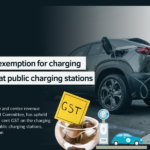
Urgent Need for Multi-Modal EV Solutions in India’s Smog-Struck Cities
India’s air quality crisis has reached alarming levels, with cities like Delhi experiencing toxic smog levels that far exceed the World Health Organization’s recommended limits. Vehicles are the primary contributors to this pollution, making the transition to electric vehicles (EVs) across all modes of transport—public, private, and shared—an urgent necessity.
With over 354 million vehicles on Indian roads as of 2022 and a heavy reliance on fossil fuels, adopting EVs is a critical strategy to combat air pollution and mitigate climate change. The government has set ambitious targets for EV penetration by 2030, but achieving these goals requires a multi-faceted approach, including robust charging infrastructure, incentives for EV purchases, and the promotion of shared mobility solutions.
The Air Quality Crisis
India’s air quality has deteriorated to dangerous levels, with cities like Delhi experiencing toxic smog that is 60 times higher than the WHO’s recommended daily maximum. The Air Quality Index (AQI) often plunges into the “severe-plus” category, with PM2.5 particles being the primary pollutant. These fine particles infiltrate the lungs and bloodstream, posing severe health risks, including premature deaths, reduced life expectancy, and increased healthcare costs.
The elderly and children are particularly vulnerable, with the former suffering from heart and lung conditions and the latter facing respiratory issues. This situation exacerbates health vulnerabilities for those with preexisting conditions, culminating in increased healthcare costs and economic losses for the nation.
The Role of Vehicles in Air Pollution
Vehicles are the leading contributors to air pollution in Delhi, with over 354 million vehicles on Indian roads as of 2022. The heavy reliance on fossil fuels exacerbates the problem. Transitioning to electric vehicles (EVs) across all modes of transport—public, private, and shared—emerges as a critical strategy to combat air pollution and mitigate climate change.
Making India’s road transport sector electric, shared, and independent of imported fossil fuels could cut the sector’s energy demand by 57% and carbon emissions by 87% by 2047. India, home to 14 of the world’s 20 most polluted cities, must prioritize EV adoption. The transport sector accounts for nearly 13.5% of the country’s carbon emissions, predominantly from road transportation.
Government Initiatives and Global Examples
The Indian government has set an ambitious target for EV penetration by 2030. Countries like China and Norway exemplify successful EV adoption. Norway leads globally, with 96.4% of new car registrations being electric, incentivized through tax exemptions and toll-free access. China recently surpassed one million EV sales in August 2024, setting a new record.
The newly implemented PM E-Drive scheme provides purchase subsidies for electric two-wheelers, three-wheelers, buses, trucks, and ambulances, alongside developing charging infrastructure. However, the exclusion of electric cars from this subsidy program is a missed opportunity. All initiatives that incentivized EV purchases for fleet taxi operators have lapsed and need to be brought in again immediately.
Challenges and Solutions
Despite the progress, several challenges remain. The exclusion of electric cars from the PM E-Drive scheme is a missed opportunity. Initiatives that incentivized EV purchases for fleet taxi operators have lapsed and need to be reinstated. According to CRISIL Market Intelligence & Analytics (MI&A), cab aggregators find EVs more viable than internal combustion engine (ICE) vehicles due to lower operating costs and environmental benefits.
The increase in outlay for charging infrastructure is a positive step, as it helps build consumer confidence and supports broader EV adoption. A recent ICCT report indicates that the total cost of ownership (TCO) parity for certain electric car models is emerging, even without subsidies. Yet, the upfront costs remain 1.3 to 1.7 times higher than conventional vehicles.
To accelerate EV adoption among private car owners, the government should enhance subsidies, particularly for lower-income households. Additionally, robust charging infrastructure is vital. Many potential EV buyers cite range anxiety and inadequate charging stations as significant barriers.
Public-private partnerships could play a critical role in expanding the charging network across urban and rural areas, ensuring convenient access for EV users. Moreover, shared mobility solutions, including ride-sharing and electric taxis, must be integrated into the EV strategy. Promoting electric shared mobility can reduce the number of vehicles on the road, lower emissions, and make EV technology more accessible to a broader population.









